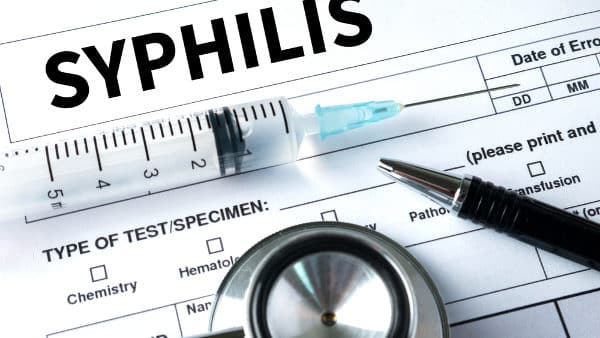
The relicensing process can be complex and inconvenient. After going through it once, most doctors are reluctant to do it again. Sermo surveyed a segment of U.S. physicians and found that 20% thought the process was too complex and time-consuming, and 54% said it was cumbersome—but manageable.
Yet, as one Sermo member explains, “Doctors must meet specific certification and licensure requirements to obtain and maintain their medical license.” The key word here is “maintain.” Standards and technologies change, and regulators need to know that you’re up to date.
Here’s a guide to medical license renewal requirements, processes, and key considerations.
What happens if your medical license expires?
State-specific regulations oversee the renewal of medical licenses. Regarding how often physicians renew their licenses, most states require annual or biennial renewal applications. For certain states, this period can extend to three years.
State medical boards administer the license renewal process to maintain public safety. They achieve this by verifying that practitioners meet ongoing educational requirements, adhere to established ethical guidelines and demonstrate continued competence in patient care.
State licensing authorities typically notify physicians by mail and/or email approximately 60–90 days before license expiration. Physicians must not practice medicine with an expired or lapsed license—doing so violates state regulations and subjects the physician to disciplinary measures from medical boards, financial penalties and potential civil liability or criminal charges. Furthermore, physicians who fail to renew their licenses on schedule may face financial fees directly with the relevant regulatory body.
How to renew a medical license
The following steps are common across states. To determine your specific licensing requirements, reach out to your state medical board.
As the following process takes time, physicians should begin the process sooner rather than later. Here’s what to do:
- Submit documents to your state medical board: In most states, physicians can submit their documents and renew medical licenses online, by mail or in person. Each state has different submission requirements.
- Pay the renewal fee: Each state’s medical board sets its fees. Medical license renewal fees differ greatly by state. Some are as low as $60 (Wisconsin) and others as high as $1,194 (California).
- Wait for the application’s review: The review timeline depends on the state and the completeness of the renewal application. An application that doesn’t contain all requisite documentation will likely experience delays.
While the requirements may appear straightforward, renewal procedures in some states closely mirror those for initial licensure applications—meaning they’re lengthy. That’s why it is recommended not to put it off and take action once you receive notice from your state board.
Thankfully, most physicians are able to complete this process online. When Sermo surveyed a segment of U.S. physicians, it revealed that 75% renewed their licenses online. Only 9% had to mail in documents, and only 12% had to go in person.
Special considerations
Physicians who are volunteers, those aiming to remain licensed after retirement and military personnel may experience a unique renewal process.
Physician volunteers
In certain states, volunteering physicians may need specialized licenses. These licenses generally exempt practitioners from standard renewal fees and may modify continuing medical education (CME) obligations.
To qualify, physicians in most states must maintain an unrestricted license in good standing. Approximately 20 states lack volunteer licensing systems entirely, meaning clinicians in those regions only need a standard active license to volunteer legally.
Medical military personnel
Many states provide accommodations that simplify the license renewal process for physicians on active military duty. Depending on the state, governing bodies may waive renewal fees and ease CME obligations during deployment, provided physicians submit proof of their military orders.
But under these provisions, physicians typically can’t practice in the civilian sector. To do so, they must maintain a fully active license. Certain states label these licenses “military inactive” and forbid private practice while deferring standard renewal requirements. Other jurisdictions simply postpone the renewal deadline until after deployment, sometimes allowing returning service members to renew once discharged.
Medical retirees
Many states provide special “retired” or “inactive” license categories for physicians who want to keep their licenses without practicing. Under these arrangements, doctors generally avoid renewal fees and CME requirements, as long as they do not see patients or prescribe medications. This status effectively pauses the license, preventing active clinical work.
Certain jurisdictions offer a “retired active” or reduced-fee license for senior physicians, often over a specific age. For physicians in Washington, this option allows limited practice and charges a lower renewal fee but still requires CME compliance.
Common medical license renewal requirements
Physicians’ medical license expiration date can be found on their paper and electronic license. While license records are readily available, state medical boards will usually send notice emails. From the time of notice, physicians generally have a few months to submit documents, depending on their state.
While states have different regulations, the following requirements are common across the board:
A completed application within the grace period
Most physicians find it easier to renew their medical licenses online. But whether in person, online or by mail, applications need to be submitted in full before the expiration date.
Should a physician miss the deadline, their state may offer a grace period. In most states, this grace period doesn’t permit the physician to practice while their license is expired but rather allows them to undergo the renewal process without completing a full reinstatement or reapplication procedure.
States differ in their grace period timeline: 30 days, 60 days, 90 days and no grace period. Doctors may use the grace period to fulfill any outstanding CME requirements they hadn’t completed by the renewal date. Generally, if a doctor doesn’t renew their license by the end of the grace period, the license will lapse retroactively to the original expiration date.
If you’ve passed your license expiration date, contact your state medical board for guidance on required steps to reinstate or restore your license.
Recent practice or teaching documentation
A small number of state medical boards may expect physicians to show they’ve stayed active. Physicians may need to prove they have practiced medicine or held a faculty position at an accredited medical institution. Under these conditions, if a physician hasn’t practiced or taught for an extended period, additional renewal requirements may apply.
CME records
All state medical boards require proof of CME completion. Generally, state boards accept the following documents as a part of the renewal application:
- Certificates of completion: Issued by the CME provider, these show the physician’s name, course title, date, credit hours and accrediting body.
- Transcripts or credit summaries: These documents come from accredited sponsors or professional organizations and list CME activities and hours.
- Verification letters: CME program sponsors or accredited providers confirm a physician’s participation.
States vary greatly in their CME requirements. If you’re unsure, consult your employer or state medical board.
Proof of insurance coverage
No federal law in the U.S. requires physicians to carry medical malpractice insurance. Instead, states determine their insurance regulations.
Most U.S. states don’t mandate proof of malpractice coverage as a condition for renewing a medical license. In fact, over 30 states don’t require doctors to hold malpractice insurance, leaving the decision to individual practitioners or their employers.
While physicians in these states can legally renew their licenses and practice without coverage, doing so carries significant financial risk. Always go for a comprehensive, reliable insurance plan.
Criminal background check
Doctors have to renew their licenses after new criminal convictions and regulatory disciplinary actions during license renewal. These updates typically cover events since their last renewal. A minority of states impose additional requirements, such as periodic fingerprint-based background checks or formal evaluations to confirm a physician’s physical or mental capacity to practice.

Join a global professional network of licensed physicians
While navigating busy schedules and evolving regulations, many physicians find the relicensing process tedious. That’s why it’s helpful to join a professional network of physicians who share your experiences, concerns, and can offer advice.
Sermo is the largest global network for physicians. Over 1 million verified doctors discuss the topics that matter to them and their patients. One Sermo member and cardiologist notes, “It is a very useful opportunity to get in touch with colleagues from all over the world.”
Become a Sermo member today.















